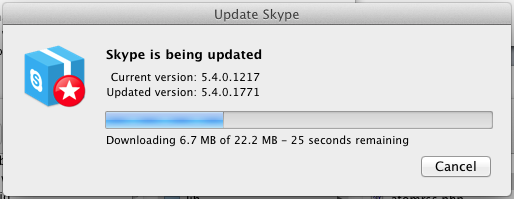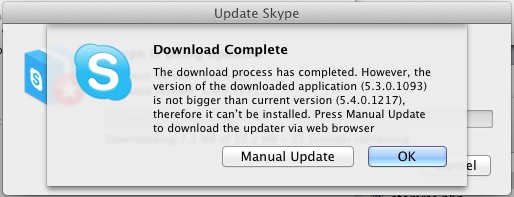It’s been thoroughly documented that Mac Skype 5 is an utter piece of junk, but it just keeps getting ‘better’!
Today it informed me that there had been a minor update to the current beta release (5.4).

Being wary of what Skype considers an ‘upgrade’, I clicked the ‘what’s new’ button that it offered to see the changes. This took me to a page all about Skype 5.3, with no hint or link of any release notes. A bit of googling for the new version number led me to some release notes. I thought this sounded fair enough, so clicked ‘update’. It downloaded the new version like this:

but then presented me with this:

That’s a very strange error. It’s telling me that it accidentally downloaded the wrong version, and didn’t check that it was the right one, it just assumed it was. Doesn’t bode well for security. On top of that the reason it can’t install is because it’s not fat enough?? Are they trying to suggest that code bloat is mandatory? Clicking ‘Manual update’ took me to the Skype 5.3 page again. Sigh.
To their credit, this IS a beta version, but given that only bug fix mentioned for the last 2 months work on this release is “Skypenames ending with period do not work properly”, I’m not holding my breath for a stable release.
Skype used to be a beautiful (well…), elegant, Mac-like app. It’s now a pig in a dress. With lipstick.



